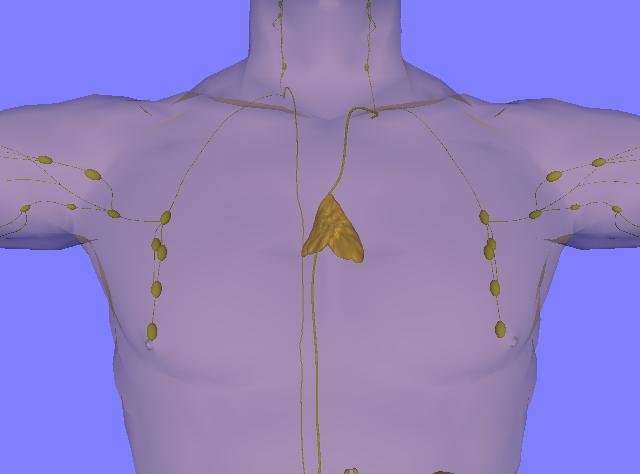This article has been reviewed according to Science X's editorial process and policies. Editors have highlighted the following attributes while ensuring the content's credibility:
fact-checked
peer-reviewed publication
trusted source
proofread
Researchers generate patient-specific cells from thymus organoids

Researchers have used pluripotent stem cells to make thymus organoids that support the development of patient-specific T-cells, researchers report March 23 in the journal Stem Cell Reports. The proof-of-concept work provides the basis for studying human thymus function, T-cell development and transplant immunity.
"We have established the framework for further basic science and translational research interrogating human thymus development and function in vitro, and in a patient-specific manner," says senior author Holger Russ, of the University of Florida. "We anticipate our work provides important conceptual and technical advances for the field."
The thymus is required for the development of a functional immune system, facilitating the generation of self-tolerant T cells that can respond to foreign substances. But the aging process results in a decrease in thymus function and T cell output, leading to increased autoimmunity and disease risk.
In the new study, Russ and his collaborators generated functional, patient-specific, stem cell-derived thymic organoids, which supported the development of thymic epithelial cells and T cells derived from human pluripotent stem cells (hPSCs). The organoids consisted of thymic epithelial progenitors, hematopoietic progenitor cells, and mesenchymal cells, differentiated from the same hPSC line. Russ says the generation of functional hPSC-derived thymic epithelial cells in the lab had never before been achieved.
The generation of a functional human thymus from human pluripotent stem cells is an attractive regenerative strategy. "An experimental model system to interrogate the mechanisms of thymic insufficiency and function is necessary and could serve to further the development of cell-based treatments for thymic defects," Russ says.
More information: Holger A. Russ, Generation of functional thymic organoids from human pluripotent stem cells, Stem Cell Reports (2023). DOI: 10.1016/j.stemcr.2023.02.013. www.cell.com/stem-cell-reports … 2213-6711(23)00060-7
Journal information: Stem Cell Reports
Provided by Cell Press





















